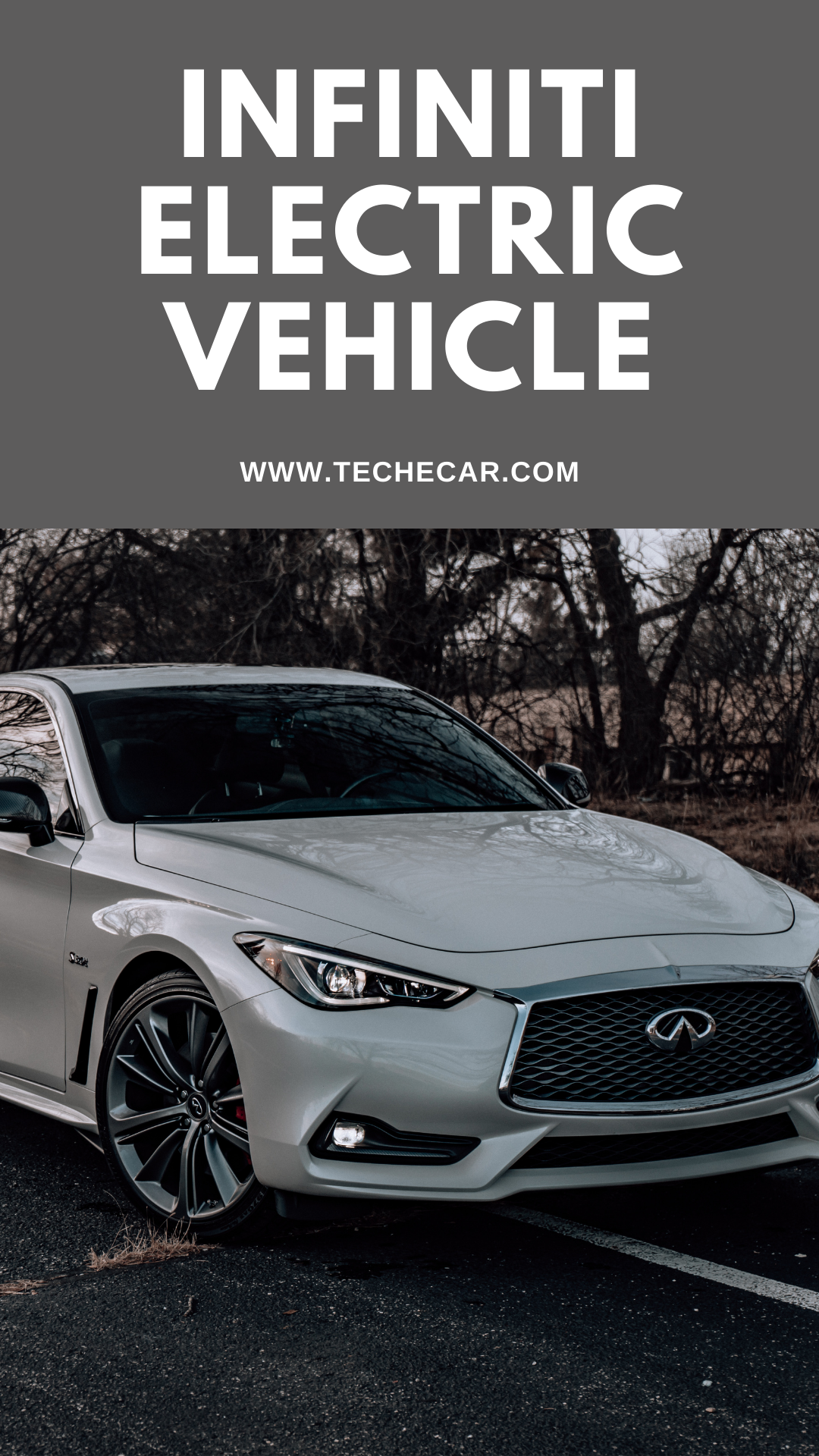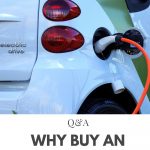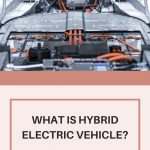Infiniti Electric Vehicle
Topic: Infiniti Electric Vehicle


Infiniti Electric Vehicle
Some automakers are taking their time transitioning to all-electric models. Some people are reluctant to face reality. As far as we can tell, Infiniti is one of the only automakers still relying on internal combustion engines (ICEs).
A few months ago, we wrote that “taking into account market trends, regulatory climate, and most importantly, customer preferences,” Tesla was reluctant to bring EVs to America.
Since its release of the conventionally powered Infiniti QX60, the business has been more focused on the brand’s electric future with a new film called “Ambition 2030: Charging forward to the horizon at Infiniti.”
To be on par with Nissan, Infiniti wants the majority of the vehicles it sells to be electrified by 2030 to make them completely sustainable from start to finish.
“We’re announcing today that by 2030, the majority of the vehicles we sell will be electric and that these vehicles will exemplify our distinctive take on contemporary Japanese luxury. Daring, forward-looking, and oriented on the human experience, they promise, “Peyman Kargar, the chairman of Infiniti, states thus.
A significant portion of the newly released video is dedicated to blowing smoke down your throat. Human-centred aims and concern for the community are bandied around gloriously. You’ll hear the same thing from every other automobile manufacturer.
We see a futuristic-looking gadget that looks a lot like an electric vehicle (EV) at the one-minute mark (due to the closed front grille). However, this vehicle looks like a high-tech marvel, thanks to its Infiniti-inspired design.
The vehicle’s roof appears to have solar panels from the top. When the clock strikes exactly one minute, Infiniti appears out of the darkness, complete with a stunning lighting show and a luminous emblem.
Toward the end of the video, a coupe, a crossover, and a more conventional SUV are shown driving towards the sunset. Despite the terrible trailer, the magnificent EV designs have us anxious to see what the future holds.
This decade, Series-Hybrid technology will no longer be a key feature of Nissan’s Infiniti premium brand’s portfolio as the brand switches to mostly electric vehicles.
Disrupting the bold, future vision of the brand unveiled in late 2019 and based on three “Inspiration” models powered by a growing mix of series-hybrid and full battery-electric powertrains, this announcement is a record scratch for the brand.
According to Automotive News, there won’t be as much glitz and glamour to this future for the brand, which first reported on this development. According to reports, perhaps because of its high price and poor fuel economy, the series-hybrid system was unavailable in the United States.
As a part of a “reevaluation and reset” of product and powertrain strategy for the brand, “we will prioritise fully electric vehicles as our initial electrified offering in the Americas, along with advanced internal combustion powered vehicles of the future,” spokesperson Kyle Bazemore told Green Car Reports.
Infiniti is betting on electric cars and hybrid technology that it hasn’t named.
At Infiniti, transmissions will be a thing of the past very soon. Future models’ driving wheels will be powered solely by electric motors, and all or almost all of them will be all-wheel-drive systems. There won’t be many charging ports, and most cars will still have a gasoline tank, a tailpipe, and an engine under the hood.
Confused? Because Infiniti is placing a large bet on a novel design, the series hybrid, this is the case. Two lithium-ion battery packs serve as an energy buffer between the internal combustion engine and the generator that powers the two motors on each vehicle’s axles.
On the 30th anniversary of Infiniti, the company intended to give the technology a boost but admitted that they hadn’t yet chosen what to title the technology.
At a brief press conference conducted last week at Spaceport America in New Mexico, the equally enthusiastic but still-incubating home of Virgin Galactic, Infiniti, revealed that a production sedan based on the Q Inspiration concept would lead the rush of series hybrids in 2021.
On the heels of that, an electric SUV based on the QX Inspiration concept debuted in Detroit last year, and a fastback inspired by the QS Inspiration fastback concept debuted in Shanghai last year.
Infiniti Electric Vehicle
QX Inspiration concept – Detroit auto show 2019
‘With a renewed focus on a customer-centric approach to luxury that has always been a hallmark of Infiniti, we are committed to providing our buyers with a range of choices,’ said Bazemore. It is expected that Infiniti would offer a wide range of powertrain options, from modern internal combustion engines to fully-electric systems.
According to the brand, Series-Hybrid technology will continue to be used on Infiniti vehicles outside of North America in the coming years.
The debut of production models based on the QX Inspiration SUV, the Q Inspiration, and the Qs Inspiration sedan marked the beginning of a new era for the company.
The 2019 Detroit Auto Show will feature the Infiniti QX Inspiration Concept.
After that, Infiniti said that it would be the first to market with a sedan based on the Q Inspiration concept in the second half of 2021. In 2022, an all-electric SUV based on the QX Inspiration concept will arrive, and in 2023, a fastback version of the Qs Inspiration concept will arrive.
Initially, hybrids were planned to account for most sales for the sedan and fastback.
For Infiniti, a series-hybrid system (in which the engine effectively serves only as a generator) would be at the heart of their daring plan, while also recognising that it was technology for the transition to electric vehicles (EV).
Detroit auto show – 2019 Infiniti QX Inspiration concept
Instead of utilising the label “hybrid,” Nissan’s e-Power technology would form the basis for Infiniti’s system. It would have superior fuel economy and lower emissions than any non-hybrid vehicle
The sudden, noisy engine racing that may be a problem with series hybrids would be eliminated with the new models’ relatively big battery packs, ranging from 3.5 kWh to 5.1 kWh.
No more than distant wind or road noise would ever be audible from the 1.5-litre turbo-3 variable compression engine. The technology had to establish itself in highway driving, which is normally a weakness for the arrangement.
Ex-Nissan CEO Hiroto Saikawa, who had claimed that every new Infiniti model would be either a series hybrid or an electric battery model by 2021, is the foundation for all of this. The new era will begin once the revised QX60, which is now in development, is unveiled, officials said during the late 2019 ceremony.
Concept design for the Infiniti Q
To handle the growing demand for electric vehicles, the strategy proposed was appropriate in that it provided consumers with gasoline-powered vehicles that were substantially equivalent to the electric ones.
Infiniti now looks to have entirely abandoned its intentions for a series-hybrid architecture. Considering the brand hasn’t said what’s next, that’s an unusual step.
Infiniti’s hybrid system is based on Nissan’s e-Power, which raises why the cost is problematic. E-Power was first introduced in the 2016 Japanese-spec Nissan Note subcompact, based on the Versa in the US.
Following its announcement earlier this year, Nissan claimed it was working on an improved version of the technology for the US market that would have a more powerful motor/generator for the country’s driving conditions.
Concept Infiniti QX – on display in October 2019
Infiniti’s plan to transition to EVs two and a half years ago sounded simpler. Still, the move to EVs sounds more complicated for the brand and dealers because it means keeping legacy gasoline models on the market for long. In contrast, fully electric models gain traction as lower-volume models.
There will be no additional comment from Nissan regarding the implications of these decisions for its US product line, including its migration to electric vehicles. We must, however, have faith that this new design family and cohesive design language will be preserved.
With a focus on electric vehicles, Infiniti has shown off three concept models and plans to be mostly electric by 2030.
With parent firm Nissan unveiling its Ambition 2030 strategy for how it will roll out numerous electrified vehicles earlier this week, its luxury brand Infiniti is doing the same with a namesake agenda.
Company chairman Peyman Kargar vows the Japanese manufacturer would sell mostly electrified vehicles by the end of the decade by gradually ditching the combustion engine in the next years.
While Nissan has vowed to launch 15 completely electric vehicles and an extra eight plug-in hybrids by 2030, Infiniti isn’t specifying how many eco-friendly models it would debut in this interval.
However, teaser photographs give us a glimpse of what to expect from the Acura rival, including an SUV judging by the greater ride height. A sleek four-door coupe can be seen closer to the camera, while a smaller car, possibly a two-seater, can be seen in the middle of the frame.
At the beginning of the week, Nissan announced that it plans to invest over $18 billion over the next five years on developing new electric vehicles, some of which will be branded as Infiniti cars.
It makes sense given the higher price tag of an Infiniti over a Nissan with the already-confirmed solid-state battery technology. The first electric automobile to use the next-gen batteries will come in 2028.
This is a significant development in light of Nissan’s claim that solid-state batteries can cut the time it takes to charge an electric vehicle in half. In addition, it will also enable the automaker to substantially slash manufacturing costs to $75 / kWh by 2028 before decreasing furthermore to $65 / kWh in the next years.
According to the firm, manufacturing an electric automobile will eventually have the same costs as one powered by a combustion engine.
It looks like we’re looking at concept cars rather than production models when we see these three electric Infinitis with their full-width LED light bars up front and back.
If our assumption is correct, the road-going models will not be available before the middle of the decade because the concepts will be released first, and the final versions will follow probably a few years later. SOURCE
People Also Ask:
Does Infiniti make an electric SUV?
Deliveries of the all-new QX60 in the U.S. begin on November 23, 2021. Infiniti’s new electric SUVs are expected to boost sales while also improving the company’s image.
Does Infiniti make a hybrid or electric car?
Direct Response Hybrid System from INFINITI uses a combination of the gas engine, lithium-ion battery, and electric motor depending on driving circumstances to give the optimal power-to-efficiency ratio.
Does Infiniti have a future?
Infiniti last year unveiled plans for a new electric platform that will birth its first vehicle in 2021. Extended-range and battery-electric EVs can be built on the platform because they are modular.
Does Infiniti have electric car?
Timing for Infiniti’s first EV hasn’t been revealed, but a launch in 2022 is planned. Future hybrids from Infiniti are also expected to be built on Nissan underpinnings, Nissan Chief Operating Officer Ashwani Gupta stated in a 2020 interview.
2021 Infiniti electric vehicle price?
The pricing of Bounce Infinity E1 starts at Rs. 45,099 and rises to Rs. 68,999.
Recommended Articles:
Stealth Night Hawk Electric Vehicle
New Orleans Roadside Assistance





